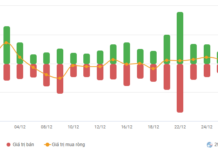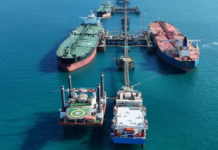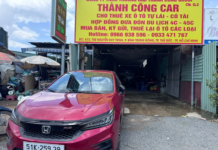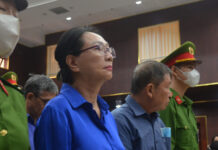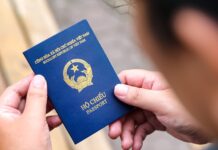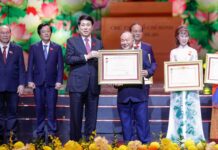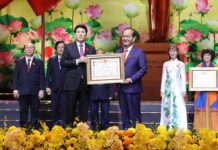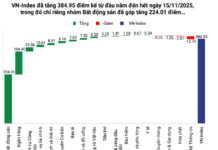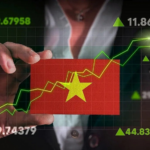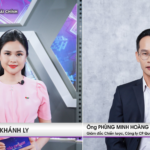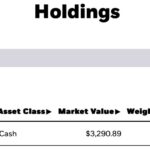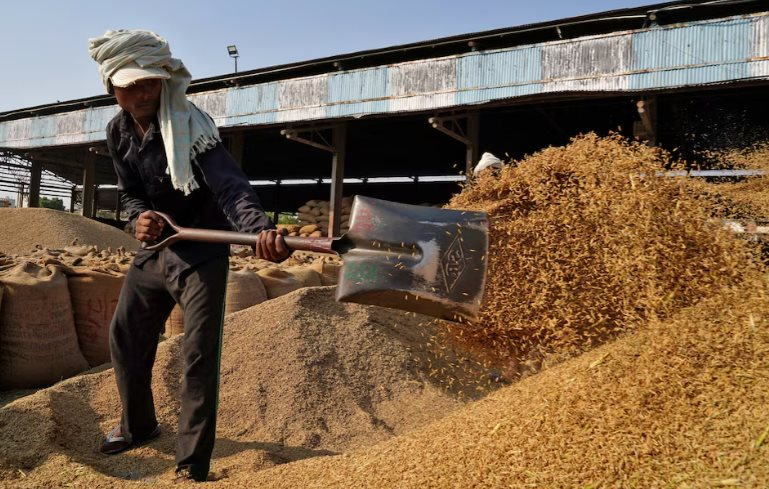
Illustrative Image
Indian rice exporters are setting their sights on emerging markets such as Iraq, Indonesia, and Saudi Arabia to boost exports, driven by a higher-than-average monsoon harvest in 2025.
Speaking to the media, Dev Garg, Vice President of the Indian Rice Exporters Federation (IREF), stated, “India has emerged as a key player in global rice trade. Our current focus is on tapping underserved markets to enhance exports, especially with domestic stockpiles at robust levels.”
According to the Food and Agriculture Organization (FAO), India harvested a record 146.1 million tons of rice in the crop year ending June 2025, significantly exceeding domestic demand of 120.7 million tons. Government stockpiles have also reached historic highs following consecutive bumper harvests.
Garg noted that exporters have identified 26 potential markets, including Indonesia, Saudi Arabia, Iraq, Vietnam, Japan, Mexico, and China, for market share expansion. “Many of these markets currently source rice from other suppliers, but we aim to offer tailored rice varieties to increase our share and benefit farmers,” Garg emphasized.
Targeted rice varieties include basmati, non-basmati, and GI-tagged rice, poised to replace approximately $20 billion worth of imports from non-Indian suppliers. These markets will be a focal point at the Bharat International Rice Conference (BIRC) 2025, scheduled for October 30–31 in New Delhi, where global exporters will convene to finalize trade agreements.
Organized by IREF in collaboration with the Agricultural and Processed Food Products Export Development Authority (APEDA), BIRC 2025 is expected to strengthen India’s position in the global food supply chain.
India currently accounts for nearly 40% of global rice exports, surpassing the combined exports of the next four largest exporters—Thailand, Vietnam, Pakistan, and the U.S. Abundant monsoon rainfall this year is projected to further bolster production, providing exporters with ample opportunities to expand their international footprint.
Source: Reuters
International ‘Hawks’ Eye Vietnam’s Stock Market for a Compelling Reason
Mr. Bui Hoang Hai, Vice Chairman of the State Securities Commission (SSC), revealed that following the market upgrade announcement, numerous international investors who previously showed no interest in Vietnam are now actively seeking information. Many of these investors, managing capital ranging from hundreds of billions to trillions of USD, are expressing significant interest in Vietnam’s stock market.
Vietnam’s Stock Market Post-Upgrade: New Opportunities, New Challenges
Following its official upgrade by FTSE Russell, Vietnam’s stock market is entering a transformative phase, marked by heightened expectations for foreign capital inflows, improved asset quality, and enhanced trading infrastructure. However, this evolution also brings new demands for transparency and governance capabilities.
HSBC: Vietnam Nears FTSE Upgrade Goal
“There is a possibility that Vietnam could be upgraded from a frontier market to an emerging market status by FTSE Russell in their upcoming review on October 7, 2025. However, according to HSBC’s latest report, the impact on capital flows may not be as significant as many anticipate.”
The Flow of Foreign Capital into Vietnam: A Sustained Trend
“Vietnam presents an attractive investment opportunity with its low valuation, high growth potential, and the shift of capital from developed to emerging markets. The country’s favorable economic landscape makes it a prime destination for investors seeking strong returns and diverse investment options.”

